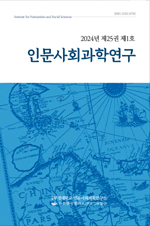- 영문명
- A Study on the Posthumous State of Human Existence Based on Thomas Aquinas’s Anthropology
- 발행기관
- 부경대학교 인문사회과학연구소
- 저자명
- 김성민(Sungmin Kim)
- 간행물 정보
- 『인문사회과학연구』제26권 제3호, 81~104쪽, 전체 24쪽
- 주제분류
- 사회과학 > 사회과학일반
- 파일형태
- 발행일자
- 2025.08.31
5,680원
구매일시로부터 72시간 이내에 다운로드 가능합니다.
이 학술논문 정보는 (주)교보문고와 각 발행기관 사이에 저작물 이용 계약이 체결된 것으로, 교보문고를 통해 제공되고 있습니다.

국문 초록
본 논문은 토마스 아퀴나스의 인간론에 근거하여, 죽음 이후 개별 인간 존재의 연속성과 그 본질적 한계, 그리고 종말론적 완전성에 대한 신학적 전망을 고찰한다. 아퀴나스는 인간을 단순히 두 실체의 결합이 아닌, 육체와 영혼이 하나로 통합된 실체적 단일체(substantia una)로 이해하였으며, 이러한 통합적 존재는 신의 창조 질서 속에서 형성되고 목적을 지닌다고 보았다. 그러나 죽음을 통해 육체와 영혼이 분리되면, 인간은 더 이상 본래의 완전한 인격체로 존재할 수 없게 되며, 이 상태는 ‘불완전한 존재’로 간주된다.
아퀴나스에 따르면, 사후에도 영혼은 지성과 의지라는 고유 능력을 통해 개별적 동일성을 어느 정도 유지할 수 있다. 그러나 이러한 동일성은 감각적 상호작용, 윤리적 책임성, 공동체적 관계성 등의 전인격적 기능이 결여된 상태로 제한된다. 즉, 영혼은 존재론적으로 독립적으로 존속할 수는 있지만, 실질적·인격적 완전성은 상실된 상태에 머무르게 된다. 아퀴나스는 이러한 결핍이 오직 부활을 통해 회복될 수 있다고 보았으며, 부활체는 본래의 육체성과 연속되면서도, 변형된 형질을 지닌 종말론적 실재로서 새로운 인간 존재의 온전성을 실현한다. 이는 예수의 부활체에 대한 신학적 전거와 연결되며, 인간 존재의 완성은 단순한 재구성이 아니라 육체의 회복과 변형을 통한 존재론적 갱신임을 시사한다.
이러한 아퀴나스의 인간론은 사후 존재의 ‘불완전한 연속성’과 종말론적 완성을 긴장 속에서 함께 사유함으로써, 전통적인 영혼불멸 사상과 몸의 부활 교리를 상호 보완적으로 통합하려는 신학적 모델을 제공한다. 본 논문은 이러한 구조를 바탕으로, 사후 인간 상태에 대한 존재론적 이해와 부활의 의미를 연결함으로써, 기독교 인간 이해의 정합성과 심화된 인간존재 완성의 전망을 제시하고자 한다.
영문 초록
This study explores the continuity and limitations of postmortem human existence, as well as the eschatological vision of perfected humanity, based on the anthropological framework of Thomas Aquinas. Aquinas does not conceive the human being as a mere conjunction of two substances, but rather as a unified substantial whole(substantia una) composed of body and soul, established within the order of divine creation. Upon death, the separation of soul and body results in the loss of human completeness, rendering the soul a “partial” or “incomplete” person. According to Aquinas, the soul retains a degree of personal identity after death through its intellectual and volitional capacities. Yet this identity remains limited, lacking full personal integrity—specifically in relation to sensory interaction, moral agency, and communal relatedness. Thus, while the soul subsists ontologically, it remains existentially incomplete. Aquinas holds that such deficiency can only be restored through bodily resurrection, in which the risen body, while continuous with the earthly body, assumes transformed characteristics. This transformation points to an eschatological reality exemplified by the risen body of Christ, and underscores that human perfection entails not mere reconstitution but ontological renewal through bodily restoration. Aquinas’s anthropology thus presents a theological model that seeks to reconcile the immortality of the soul and the resurrection of the body, holding both in constructive tension. By reexamining the ontological implications of the intermediate state and integrating them with the eschatological promise of resurrection, this study proposes a coherent Christian understanding of human identity—one that affirms both the continuity of the person and the ultimate fulfillment of human existence in its full bodily-spiritual integrity.
목차
Ⅰ. 서론
Ⅱ. 인간에 대한 이해
Ⅲ. 죽음에 대한 이해
Ⅳ. 토마스 아퀴나스의 논쟁점
Ⅴ. 결론
참고문헌
키워드
해당간행물 수록 논문
- 해양교육네트워크로 보는 해양교육 현황과 과제
- 관우, 관제, 관푸치노 - 가치관 전환시대의 고전읽기
- 『표준국어대사전』기반 독일어계 외래어의 형태 변화와 품사 분포에 대한 계량적 분석
- 산업재해예방의 정책수단 실효성
- 철학교육에서의 도덕 판단 구성과 반성적 평형: 직관의 역할 재검토
- 중국기독교 신학교육의 재구조화와 전망
- 토마스 아퀴나스의 인간론에 근거한 죽음 이후의 인간의 상태연구
- 미디어 콘텐츠를 활용한 중국어 “幫+NP+VP” 구문의 실제적 연구
- 에도시대 무사(武士)의 부업(副業)과 장인(匠人)정신의 상관관계 연구(2) - 고케닌(御家人)의 부업을 중심으로
- 『취분운략(聚分韻略)』제본(諸本)에 걸친 경섭(梗攝)의 자음형(字音形)에 대하여
- 식민지 조선의 ‘대극장’ 건설론 - 1930년대 재경성 일본인들의 비전과 미완의 시도
- 한국어와 키르기스어의 보조동사 인식 및 사용 양상 - ‘-어 버리다’와 ‘-어 보다’를 중심으로
- 한국·일본·베트남한자음 자음형의 창출요인에 관한 연구 - 최적성이론을 적용한 타국 한자음과의 비교를 통하여(齒上音)
- 산업별 고용 중기 전망의 예측오차 영향요인 분석
- 정서적 긴장과 신뢰: 신뢰의 부정적 효과와 역설
- 2025년 마크롱 대통령 담화에 나타난 프랑스와 아프리카의 관계 변화 양상 연구 - 서아프리카를 중심으로
- 2025년 한일 첫 정상회담 뉴스 영상에 대한 한·일 댓글 분석연구 - 정당화 전략을 중심으로
- 부산 시민의 내향적 국제화 인식 개선 방안: 국제화 인식 설문조사를 바탕으로
- 우레이(Wu Lei) 읽기: 한국 미디어가 보도/재현하는 양상과 방식의 한국적 의미
- 뉴스 기사를 통한 미국 다문화 리터러시 주제 구조 탐색: BERTopic 기반 분석
- 조직정치지각이 직무스트레스, 직무만족, 조직몰입 및 혁신행동에 미치는 영향: 재중 한국기업의 중국 현지 종업원을 대상으로
- 대학생의 프로티언 경력태도와 진로준비행동 간의 관계에서 진로역량 및 진로태도성숙의 매개효과
- 어머니의 양육 스트레스와 유아 자기조절력의 관계에서 어머니 정서표현성의 병렬이중매개효과
- 활자 노출 빈도와 단어 재인 시 음운 활성화 강화와의 관계
- 외국인 유학생의 교육관광 만족요인 분석에 관한 연구 - A 대학교 사례를 중심으로
참고문헌
관련논문
사회과학 > 사회과학일반분야 BEST
- AI와 디지털 문화 산업의 결합에서 저작권 및 윤리적 규범 준수의 필요성 연구
- 인공지능(AI)과 윤리
- 종합병원 간호사의 환자안전문화인식과 조직의사소통만족이 안전간호활동에 미치는 영향
사회과학 > 사회과학일반분야 NEW
- AI 기반 포토리얼리스틱 비디오를 활용한 전문 간호사 고위험 약물 교육콘텐츠 - 개발 및 타당성 평가
- ATP 측정을 활용한 어린이집 급식 위생 관리의 객관적 평가 지표 도입 필요성
- GIS DB 구축 용역에서의 안전보건관리비와 용역기간 적정성에 관한 실증적 분석
최근 이용한 논문
교보eBook 첫 방문을 환영 합니다!

신규가입 혜택 지급이 완료 되었습니다.
바로 사용 가능한 교보e캐시 1,000원 (유효기간 7일)
지금 바로 교보eBook의 다양한 콘텐츠를 이용해 보세요!



